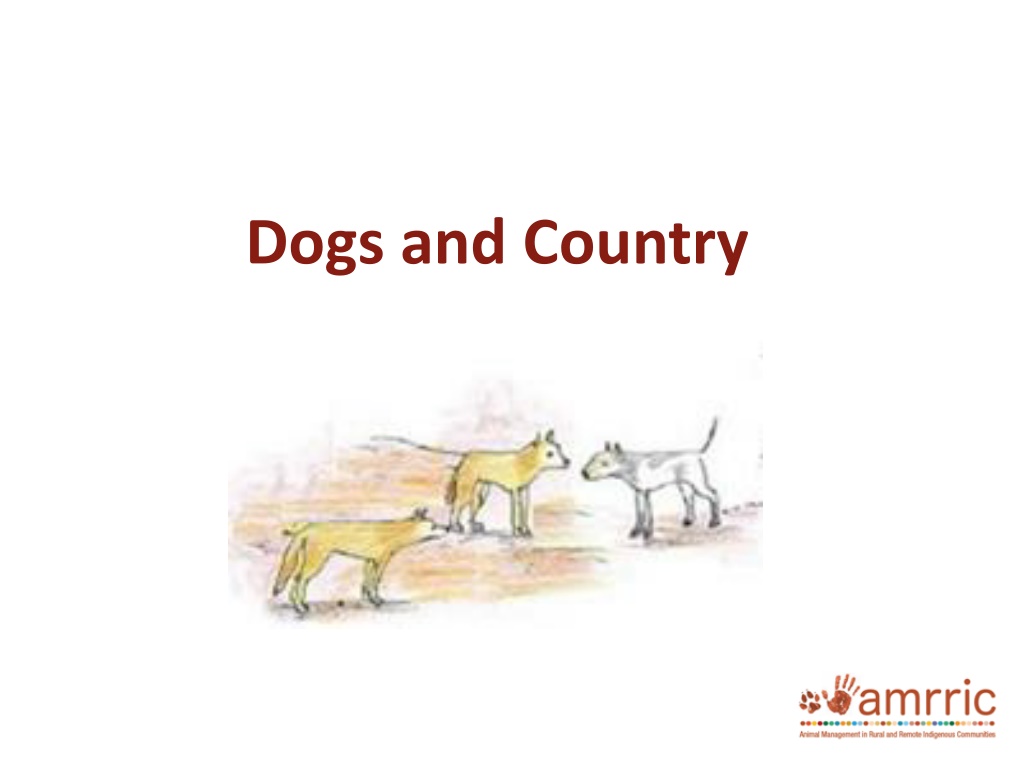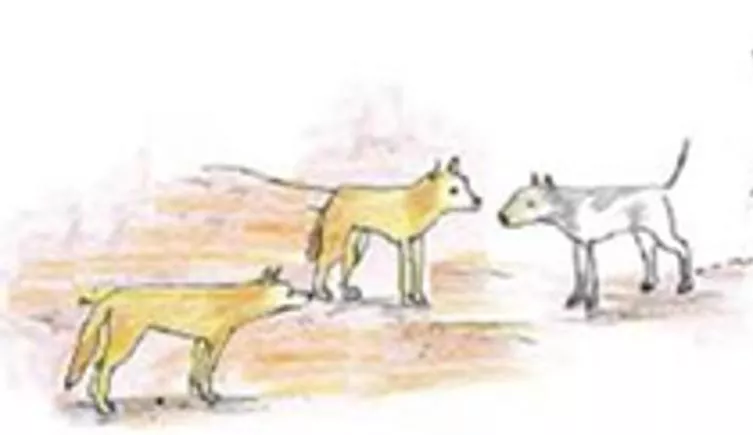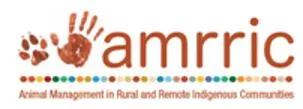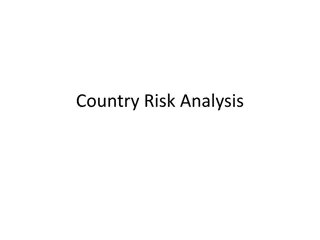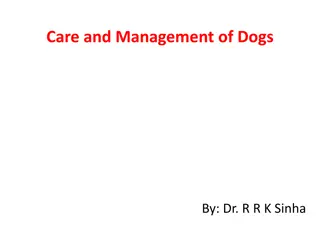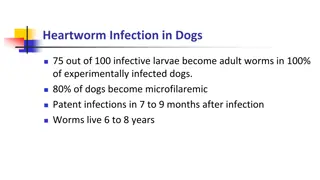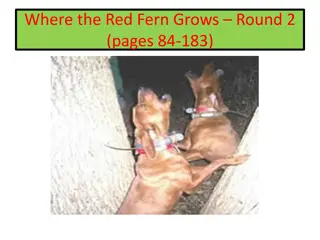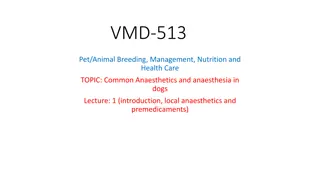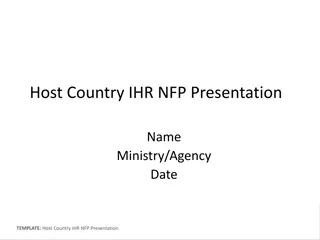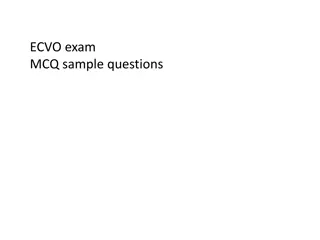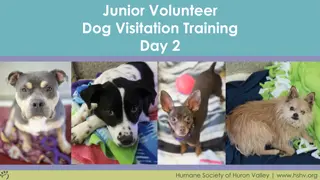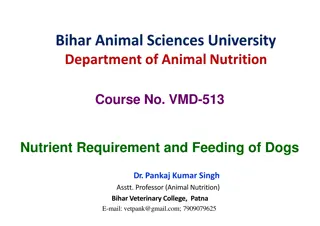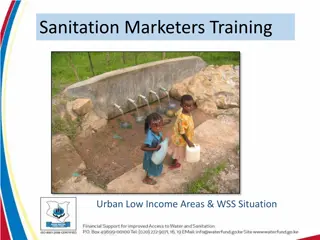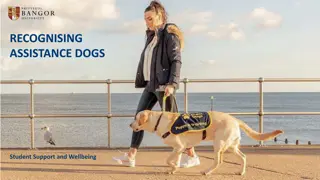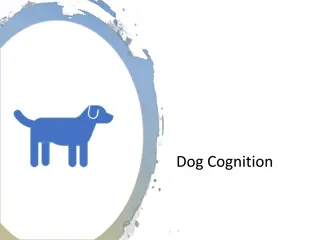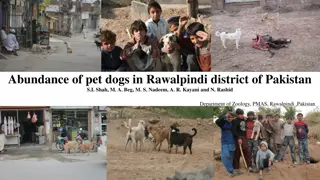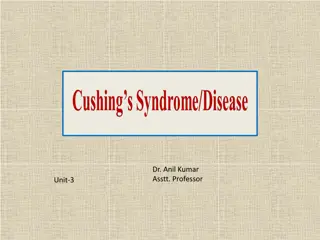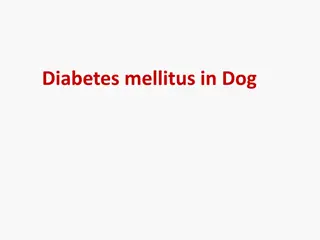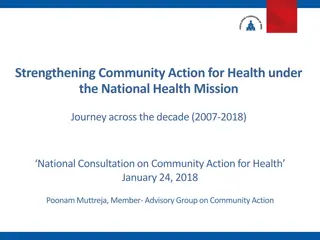Managing Dogs in Country Areas for Community Health
Dogs play a crucial role in country areas, but they can also pose health and environmental risks. Issues such as litter, sewerage, wildlife disturbance, feral animals, and dog-dingo hybrids impact the well-being of communities. Proper waste management, controlling feral animals, preventing cross-breeding with dingoes, ensuring clean water sources, and responsible dog ownership are essential for maintaining a healthy environment.
Download Presentation

Please find below an Image/Link to download the presentation.
The content on the website is provided AS IS for your information and personal use only. It may not be sold, licensed, or shared on other websites without obtaining consent from the author. Download presentation by click this link. If you encounter any issues during the download, it is possible that the publisher has removed the file from their server.
E N D
Presentation Transcript
The health of the place we live in has a big impact on our health. Dogs can help us live well on country but they can also dirty water, affect wildlife and spread disease around where we live. - Rubbish - Sewerage - Yards - Wildlife - Feral animals - Dog-dingo hybrids
Wildlife Dogs can help people hunt on country, and help keep them safe from snakes and other wild dogs But dogs can also chase, hurt, and eat a lot of wildlife around communities.
Feral animals Feral animals degrade country and compete with wildlife People-created resources like water troughs support feral animals more than wildlife, who are more drought tolerant. Stopping dripping taps and fencing off rubbish tips helps keep ferals down as well as making communities healthier for people and dogs Dingoes keep feral cats and foxes down
Dingoes Dogs cross-breeding with dingoes threatens the survival of the dingo. Dog-dingo hybrids can behave differently to dingoes, harassing stock more and breeding up more quickly. Undesexed dogs in remote communities are a source of strays right in dingo heartlands.
Water Guna is filled with gut germs that make people sick If our water sources get gut germs like Giardia in them, both people and dogs can get sick and spread disease. Germs live longer in wet places, so fixing dripping taps and keeping yards dry keeps our homes healthy Make sure there is always clean water for dogs to drink.
Rubbish Rubbish is a great home for germs Keep rubbish in the bin away from dogs and flies that will spread its germs. Kimbes (nappies) are important to keep away from dogs, because it s a direct source of human gut germs into dog guts, from where it can spread through dogs poos around the yard. Fence off rubbish tips to stop dog and kids getting in.
Sewerage Fix leaky sewerage pipes and tanks, and keeping kids and dogs out of sewerage ponds. Dog poos are also sewerage, so keeping yards clear of dog poos is important too.
Desexing dogs Puppies can t fight off gut diseases very well. Germs multiply a lot inside the pups. Having a lot of pups multiplies the problem! Desexed dogs also don t contribute to overpopulation, are easier to keep healthy, and don t threaten the dingo through crossbreeding.
Keeping where we live healthy helps keep everyone and everything happy, strong and healthy: Land, water, wildlife, dogs and people
